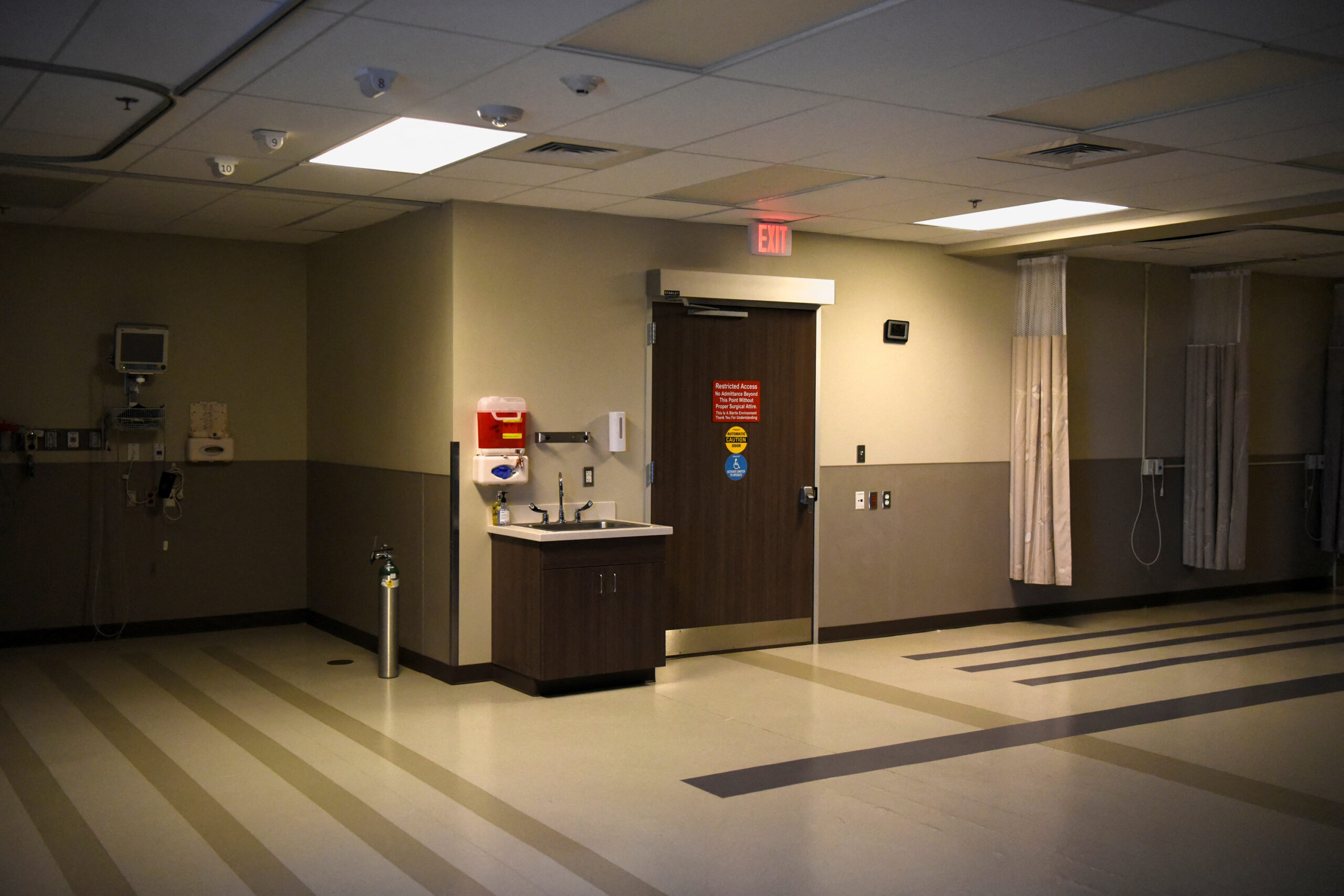In the 100 days since the Supreme Court reversed Roe v. Wade, 66 clinics in the U.S. stopped providing abortion. That’s according to a new analysis published Thursday by the Guttmacher Institute, assessing abortion access in the 15 states that have banned or severely restricted access to abortion.
“Prior to Roe being overturned, these 15 states had 79 clinics that provided abortion care,” says Rachel Jones, a principal research scientist at Guttmacher. “We found that 100 days later, this was down to 13.”
All of the 13 clinics still providing abortions are in Georgia, where abortion is banned at six weeks before many women know they are pregnant.
Dr. Nisha Verma, an OB-GYN who practices in Georgia, said she has had to turn many patients away in recent months.
“I have had teenagers with chronic medical conditions that make their pregnancy very high risk and women with highly desired pregnancies who receive a terrible diagnosis of a fetal anomaly cry when they learn that they can’t receive their abortion in our state and beg me to help them,” she told President Biden and members of the White House Task Force on Reproductive Healthcare Access this week.
“Imagine looking someone in the eye and saying, ‘I have all the skills and the tools to help you, but our state’s politicians have told me I can’t,’ ” she added.
Nearly 22 million – or 29% – of women of reproductive age live in a state where abortion is banned or limited to six weeks gestational age, according to the report.
While 40 of the clinics in these states are still open for other services, the Guttmacher analysis found 26 clinics had completely closed down, which means they might never reopen.
“These clinics don’t have staff anymore, they probably moved their medical supplies to other facilities,” Jones explains. “So it’s not like they could open their doors tomorrow if these bans were lifted.”
The report also notes that the halting of abortion services at these clinics has a ripple effect through the health care system. As patients travel to the states where abortion is still legal for these services, clinics in those states are experiencing larger patient loads and patients face longer wait times.
Having to travel out of state can also complicate care. This has already happened to patients Dr. Sadia Haider treated in Illinois, a state surrounded by states that ban or restrict abortion.
“I recently saw a patient from a Southern state with a very serious obstetric condition, an abnormal placenta, [which] can cause severe hemorrhage and morbidity if not treated appropriately,” she explained during the White House event this week. The patient had already tried to get care in her own state and elsewhere before coming to Illinois.
“We were able to provide the care required for this patient, which was unfortunately more complex than it needed to be because there were several weeks that ensued before the patient sought care and eventually saw us,” Haider said.
Jones and her colleagues at the Guttmacher Institute expect the numbers of clinic closures to grow as more states pass abortion restrictions. “[Our] estimate is that ultimately there’s 26 states that are going to ban abortion, and again, we’ve only got 15 at this point,” she says.
She says the next states to watch – where bans have already been implemented but where abortions are still accessible for now – are Ohio, Indiana and South Carolina.
Copyright 2022 NPR. To see more, visit https://www.npr.org.
9(MDAxODM0MDY4MDEyMTY4NDA3MzI3YjkzMw004))

9(MDAxODM0MDY4MDEyMTY4NDA3MzI3YjkzMw004))








